Japanese Studies Overseas
To promote understanding of Japan overseas, the Japan Foundation implements programs to support Japanese studies in various countries and regions while working to build and strengthen networks among researchers and research institutions in Japan and abroad.
Japanese Studies Fellowships
In the “Japanese Studies Fellowships” program, we offered scholars and researchers engaging in Japan-related research overseas the opportunity to conduct research activities in Japan. In FY2023, we newly welcomed 82 fellows, in addition to the 40 fellows continuing from the previous fiscal year, resulting in a total of 122 fellows conducting research activities in Japan.
Along with this, various initiatives aimed at building new networks were developed, including fellow conferences and presentation/exchange meetings.
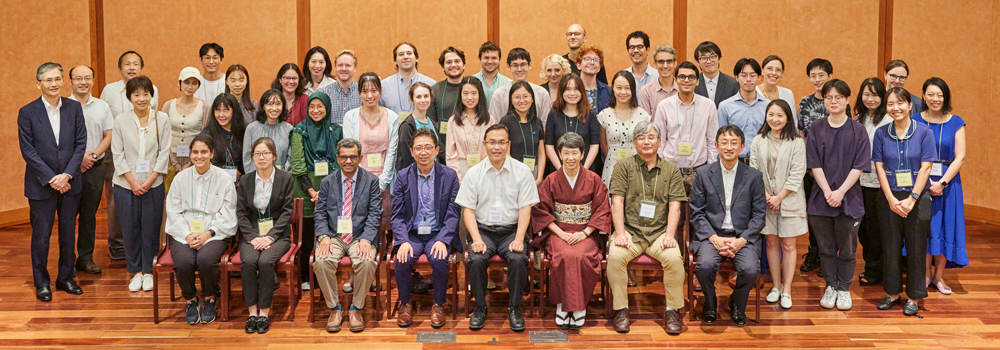
In JF-GJS Initiative: The Japan Foundation Fellow Conference 2023 held at The University of Tokyo gathered JF fellows conducting research activities in Japan.
Support for Japanese Studies Organizations
We aim to promote the long-term development and expansion of Japanese studies overseas by providing support to institutions engaging in Japanese studies in various countries and regions.
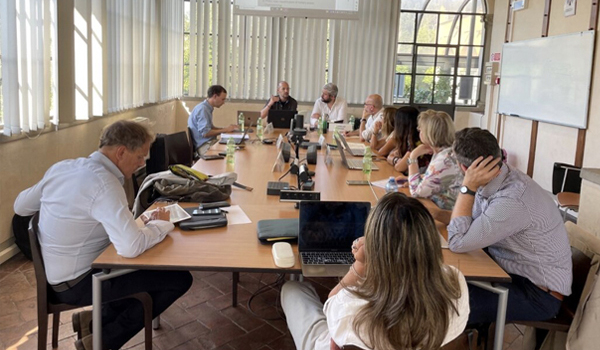
Support for the European University Institute through the Grant Program for Social Science Research and Education on Contemporary Japan
The grant provided continuing support for establishing and operating courses on Japanese diplomatic and security policy at the European University Institute in Italy.
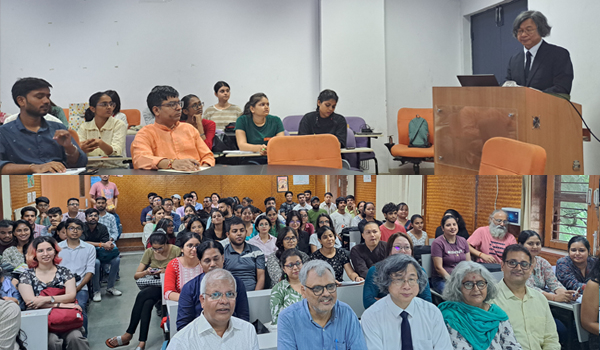
Visiting Professor Dispatch Project in India through the Support Program for Development of Infrastructure for Japanese Studies
The visiting professor dispatch project resumed after a four-year hiatus due to the COVID-19 pandemic. Professors from Japan provided direct instruction to students at host universities, including Visva-Bharati University. They also conducted guest lectures at institutions such as Jawaharlal Nehru University and the University of Delhi. This created opportunities to build new networks for institutions that had recently begun Japanese studies projects in India.
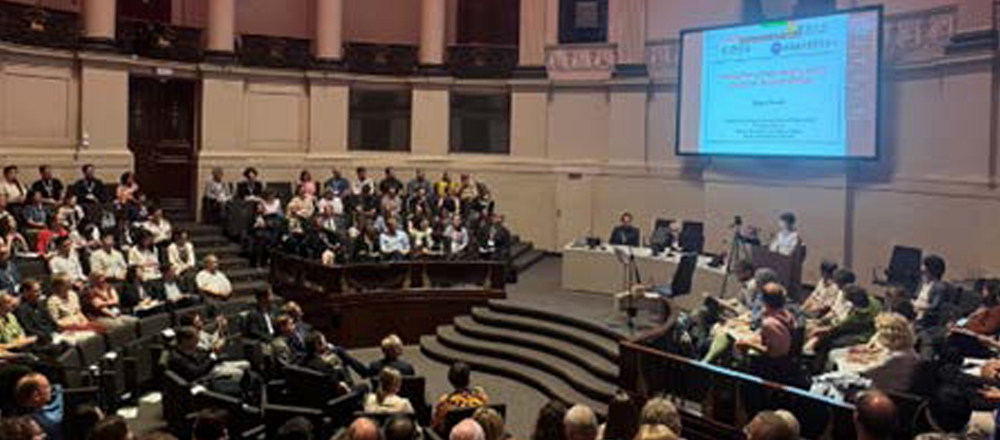
European Association for Japanese Studies (EAJS) 17th International Conference
The 2023 conference, held in a hybrid format, drew over 800 participants to the Ghent University (Belgium) in-person venue. It also achieved cross-regional collaboration through joint panel sessions between EAJS and the East Asian Consortium of Japanese Studies.
Support for Strengthening Japanese Studies Networks
We aim to contribute to the advancement and evolution of Japanese studies overseas by fostering cross-disciplinary connections and promoting network building among researchers, experts on Japan and related institutions involved in Japanese studies.
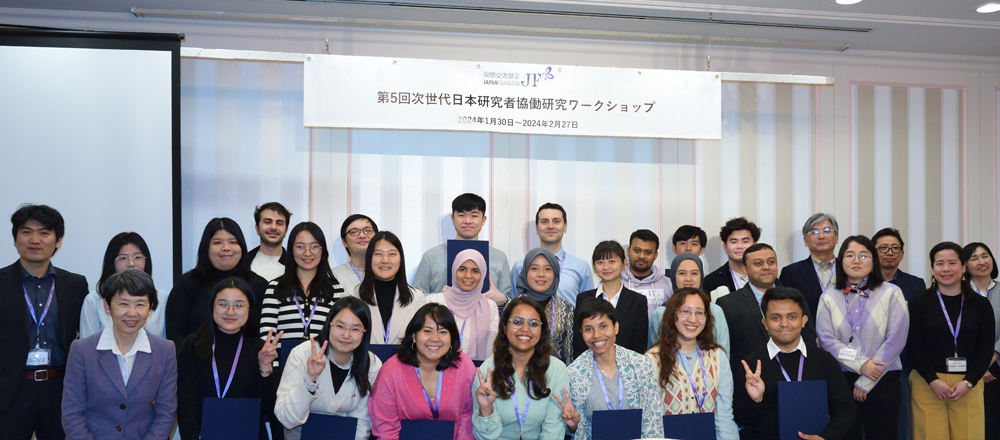
The 5th Collaborative Research Workshop for Aspiring Scholars in Japanese Studies
This workshop started in FY2018 aiming to develop the basic skills necessary for conducting international and interdisciplinary collaborative research of young researchers of Japanese studies.
In FY2023, we expanded participation beyond Asia to include participants from Turkey, Egypt, and Brazil. Graduate students who participated in the 10-day program in Japan gained insights into the possibilities and practical aspects of multinational collaborative research through instructor lectures. They also engaged in group work to practice collaborative research and conducted mock panel presentations on the final day, simulating an in-person international conference.
- About Us Top
- About the Japan Foundation
- Donations
- News & Topics
- News & Topics Top
- Main Activities
- Main Activities Top
- Fiscal Year 2025-2026
- Fiscal Year 2024-2025
- Fiscal Year 2023-2024
- Fiscal Year 2022-2023
- Fiscal Year 2021-2022
- Fiscal Year 2020-2021
- Fiscal Year 2019-2020
- Fiscal Year 2018-2019
- Fiscal Year 2017-2018
- Fiscal Year 2016-2017
- Fiscal Year 2015-2016
- Fiscal Year 2014-2015
- Fiscal Year 2013-2014
- Events / Projects
- Press Release
- Press Release Top
- Fiscal Year 2025-2026
- Fiscal Year 2024-2025
- Fiscal Year 2023-2024
- Fiscal Year 2022-2023
- Fiscal Year 2021-2022
- Fiscal Year 2020-2021
- Fiscal Year 2019-2020
- Fiscal Year 2018-2019
- Fiscal Year 2017-2018
- Fiscal Year 2016-2017
- Fiscal Year 2015-2016
- Fiscal Year 2014-2015
- Fiscal Year 2013-2014
- Links
